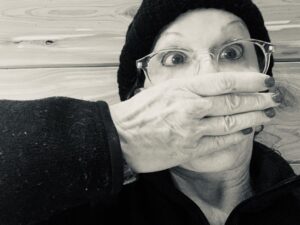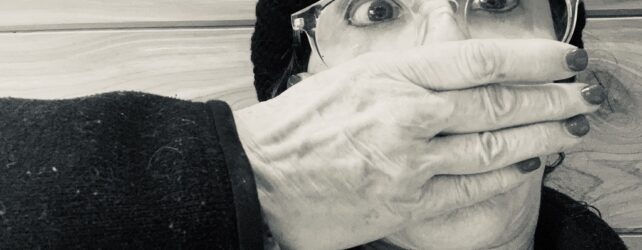 LINK to article: https://bit.ly/NoMoreCoronaVirusWorries
LINK to article: https://bit.ly/NoMoreCoronaVirusWorries
This isn’t the end of the world, it’s just the beginning of changing times.
The coronavirus has changed our society and culture in a very short time, and for most of us, priorities have changed. Instead of focusing on divisive issues and how we are different, we all share now a similar problem: Figure out how to stay afloat, sane and illness-free while hunkering down in our homes in social isolation. For all of the unwanted things the coronavirus brings, there still might be something good to come of it … perhaps it’s the reset our culture so desperately needed to take the attention off of differences, while causing us to focus on how we can help one another during an incredibly difficult time and beyond.
Still, most people are experiencing some level of stress as the coronavirus spreads across the USA, which is understandable. People are experiencing reductions or loss of income or jobs, having to downsize or close businesses, kids home from school and home schooling, everyday supplies unavailable, the potentiality of a dangerous and contagious virus and all the weirdness of almost everyone staying home.
Therapists know that too many stressors or changes in a short time in a person’s life often will trigger depression and anxiety symptoms, physical illness, or both, so most of us know there has to be a lot of that going on right now. The most commonly diagnosed mental disorder, once called adjustment disorder, is now called stress response syndrome. It happens when people have difficulty adjusting to changes, and who isn’t going through at least a little of that right now? You might feel hopeless, sad, have anxiety and worry, headaches or stomachaches. Don’t be afraid to speak out if this happens to you, it’s very common and treatable. You might need a therapist to coach you into how to process this national crisis in the healthiest possible way, and if that doesn’t bring you relief, you might reach out to your family physician for medications. There is no shame whatsoever in reaching out for either of these options, or both.
On my end, I’ve put together a list of things you can do now that will help you through the coronavirus pandemic in the healthiest possible way:
1. Educate yourself with truthful and accurate information. Don’t be upsetting yourself over rumors and conjecture about the coronavirus, and don’t buy into those who would minimize concerns for political reasons. Learn what is real and worth being concerned about through reliable medical sources like the CDC and state and national department of health resources.
2. Do what you can to protect yourself from the virus. Wash your hands often, keep your distance from people, don’t touch people or your face. Stay at home as much as you can and stay connected to those you care about through phones, email, video conferencing.
3. Know what resources are available to you. Seek out and pursue what financial and medical resources are out there that may assist you in being able to take care of yourself and your family. Are there government loans that may be forgivable? Will credit, utility, banks, loan companies discount or temporarily eliminate payments?
4. Understand what worry and anxiety is. Worrying and anxiety cannot exist unless a person is focusing on the future. Many people have a tendency to imagine things that could happen that probably will never happen, so if you find yourself obsessing over the virus, or engaging in catastrophic thinking, visualize a big red stop sign to stop the thought, then consciously make yourself think about something else, preferably something that is a resource for you. Resources are things that shift you to a softer mood almost instantly, for me this might be my husband, pets or nature. Understand what you can control and what you cannot, and don’t waste time thinking about things that you can’t change.
5. Breathe. Deep long breaths will signal to your brain to relax. Anxiety and worry cause a person to tense and shallow breathe, and we want the opposite of that. Get yourself still, focus on your breath, notice the air going in and out, and voila, you won’t be able to think about the virus or anything else negative. This is how to bring yourself out of future thinking into the present.
6. Anxiety comes in waves. If you still end up getting anxiety, know that what goes up, will very soon come down, so the uncomfortable feeling is temporary. It might also help to reassure yourself that you are safe.
7. Get medical help if needed. Do not hesitate to call or visit your family doctor or local emergency clinic if you get symptoms of COVID-19. If you don’t have any symptoms and haven’t been exposed to the coronavirus that you know of, but are mentally and emotionally suffering, get therapy. Many therapists are doing phone or online therapy now, and they can help you process things in a healthy way.
There really are things we can all do to lessen negative effects of the pandemic. Be smart and well-informed, make lemonade out of lemons where you can, be positive-minded and focus on good outcomes and ride out these strange and difficult days knowing you are smart, capable, and can figure anything out that may come your way, because you can.
“Doctor Becky” Whetstone has a doctorate in Marriage and Family Therapy and is a licensed LMFT in Texas and Arkansas under her legal name, Becky Whetstone Cheairs. She also is a Licensed Professional Counselor in Arkansas under the same legal name, Becky Whetstone Cheairs. She is in private practice in Little Rock, Arkansas, and does online coaching throughout the USA and world. To reach Doctor Becky visit her web site at www.doctorbecky.com.

 Becky Whetstone is an Arkansas native and has a Ph.D. in Marriage and Family Therapy from St. Mary’s University in San Antonio, Texas. She is a Licensed Marriage and Family Therapist (LMFT) in Texas and Arkansas.
Becky Whetstone is an Arkansas native and has a Ph.D. in Marriage and Family Therapy from St. Mary’s University in San Antonio, Texas. She is a Licensed Marriage and Family Therapist (LMFT) in Texas and Arkansas. 





















































































































